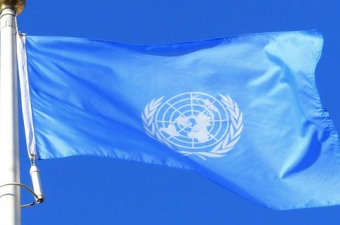This week, the International Criminal Tribunal for the former Yugoslavia (ICTY) and the Mechanism for International Criminal Tribunals (Mechanism) will join the UN in celebrating 70 years since the entry into force of the UN Charter on 24 October 1945. As members of the UN system, the ICTY and the Mechanism have been at the forefront of the UN’s efforts in support of international justice and accountability for violations of international law.
Ahead of the anniversary, the ICTY and Mechanism President, Judge Theodor Meron, participated in a conference at the Royal Institute of International Affairs, in London. The conference, ‘UN at 70: International Law and the Achievement of UN Aims’, reflected on the UN’s mandate and achievements to date. The conference was attended, among others, by the UN Legal Counsel, Mr. Miguel de Serpa Soares, and Deputy Legal Counsel, Mr. Stephen Mathias.
Discussing the contribution of UN courts to the UN’s purposes, including the peaceful resolution of international disputes in conformity with principles of justice and international law, President Meron underscored that “the ICTY has helped to unite the international community behind the cause of international justice and changed the way we think about accountability”. President Meron observed that through hundreds of rulings addressing principles of international criminal, humanitarian, and human rights law, the ICTY has played a crucial role in strengthening international law and the rule of law and has made major contributions to the implementation of the purposes of the UN Charter. The President added that, in the years to come, the Mechanism will carry forward the important work of the ICTY and its sister tribunal, the International Criminal Tribunal for Rwanda, thereby reflecting “the UN’s continued commitment to justice and principled accountability”.
UN Day has been celebrated since 1948 as an occasion to acknowledge the global efforts and achievements of the Organisation since its creation and an opportunity to reflect on the challenges ahead.


